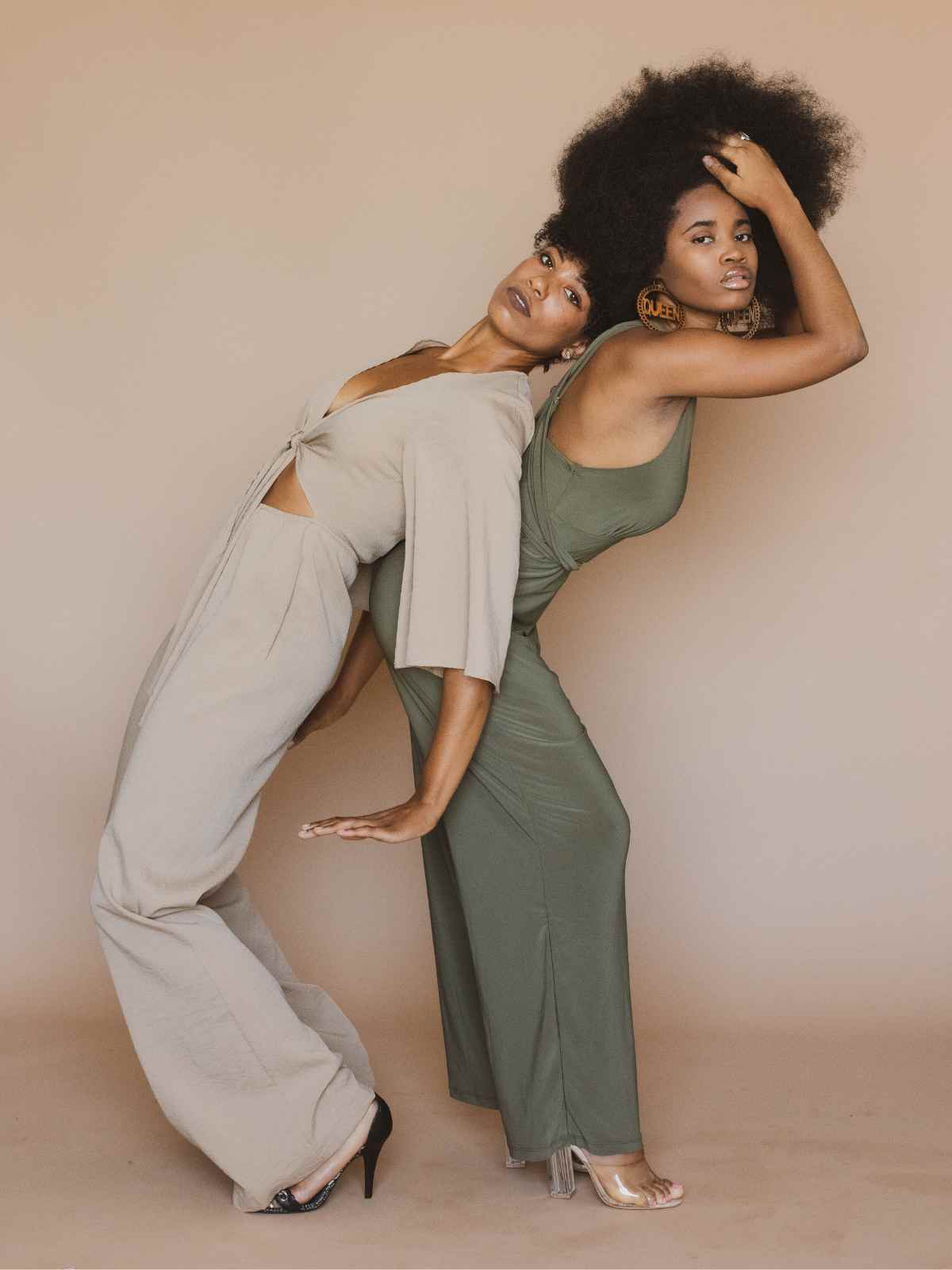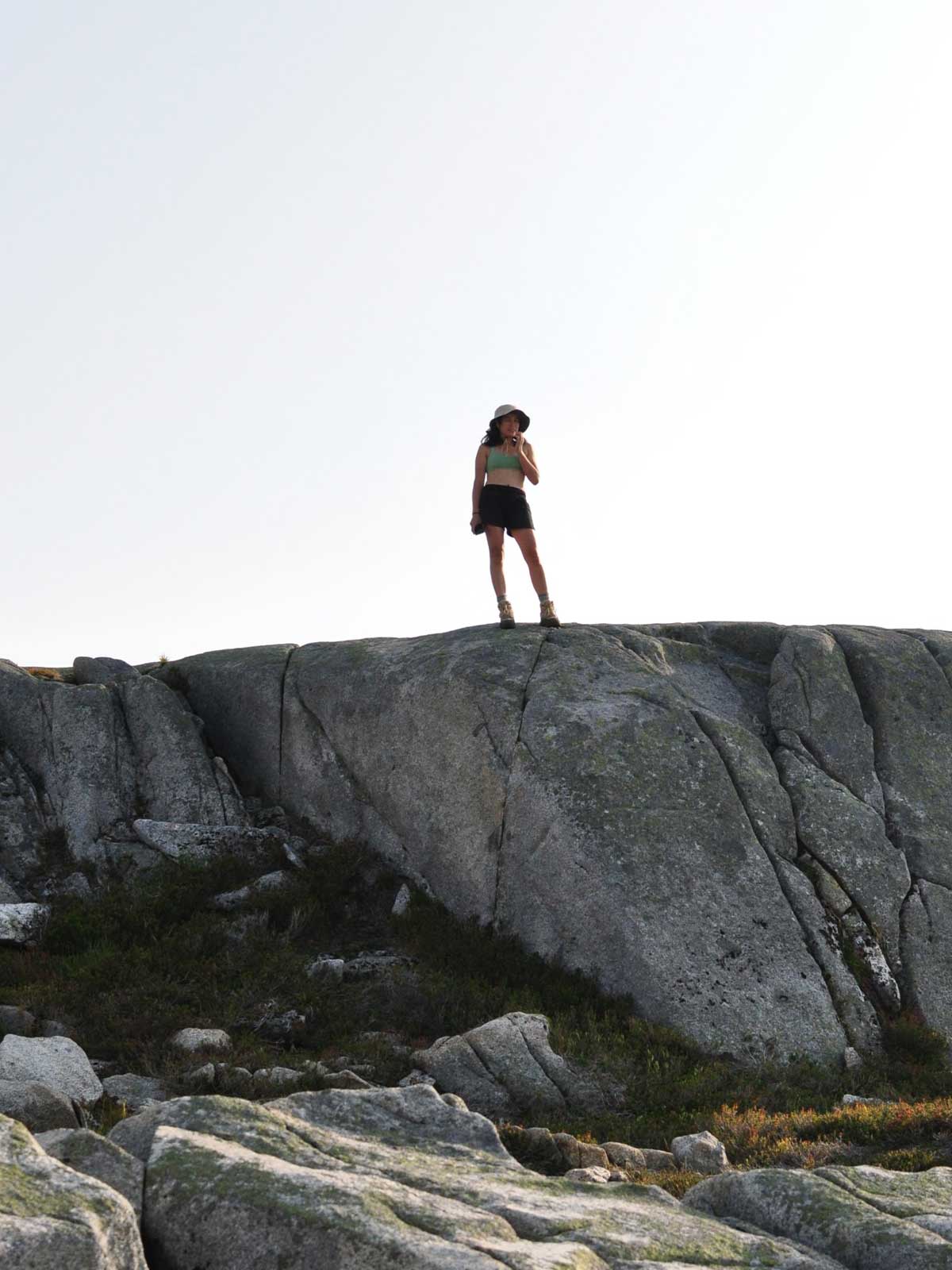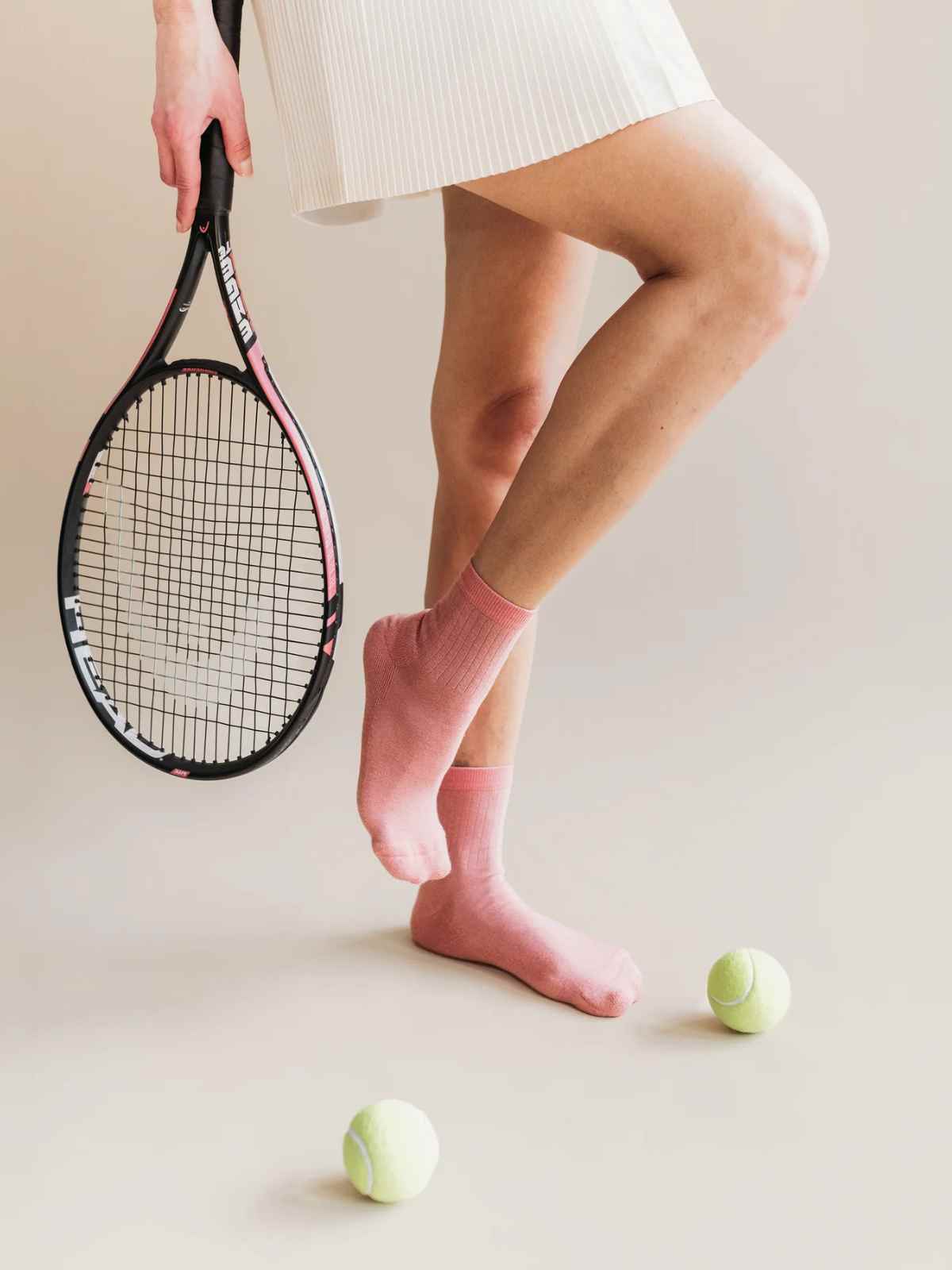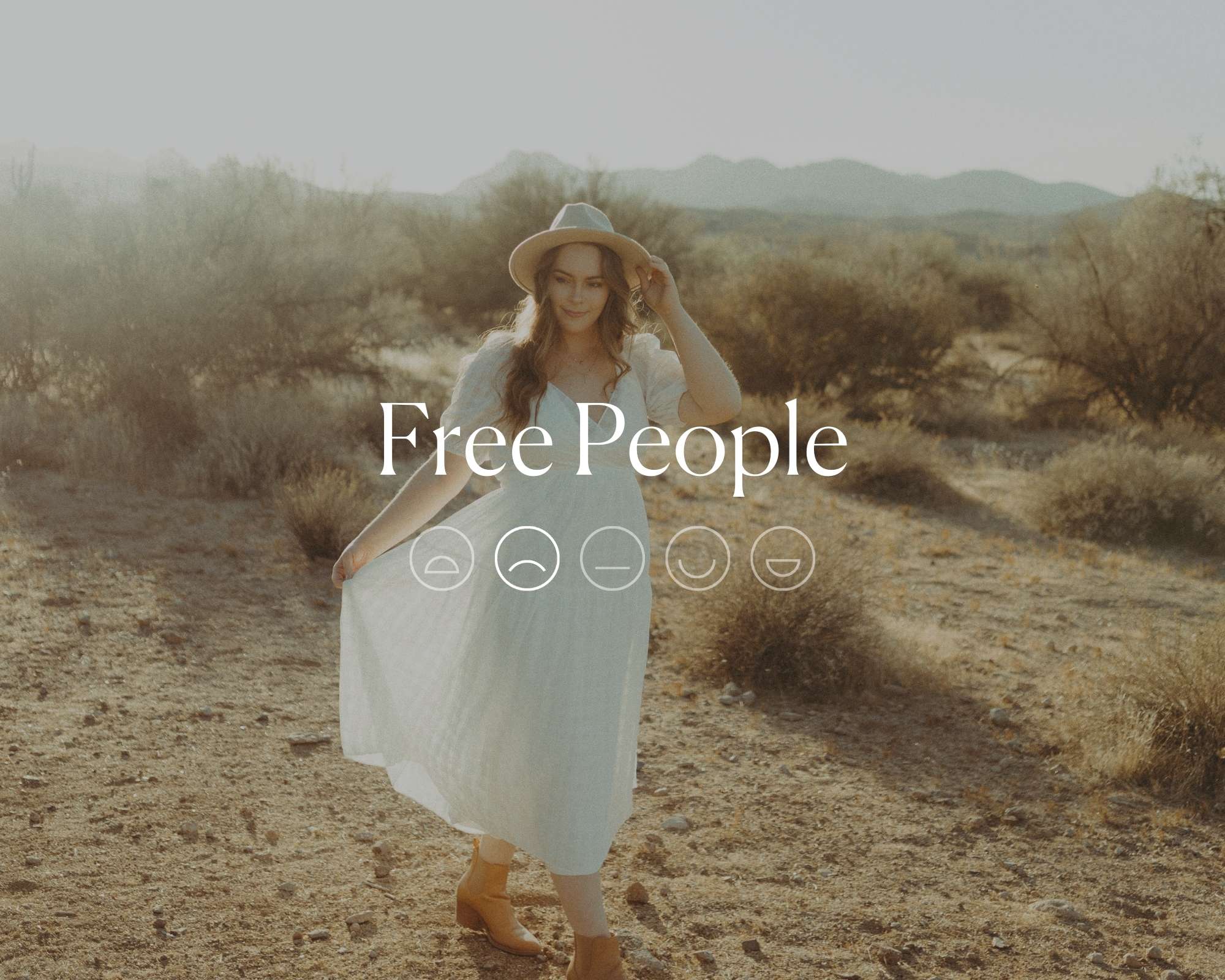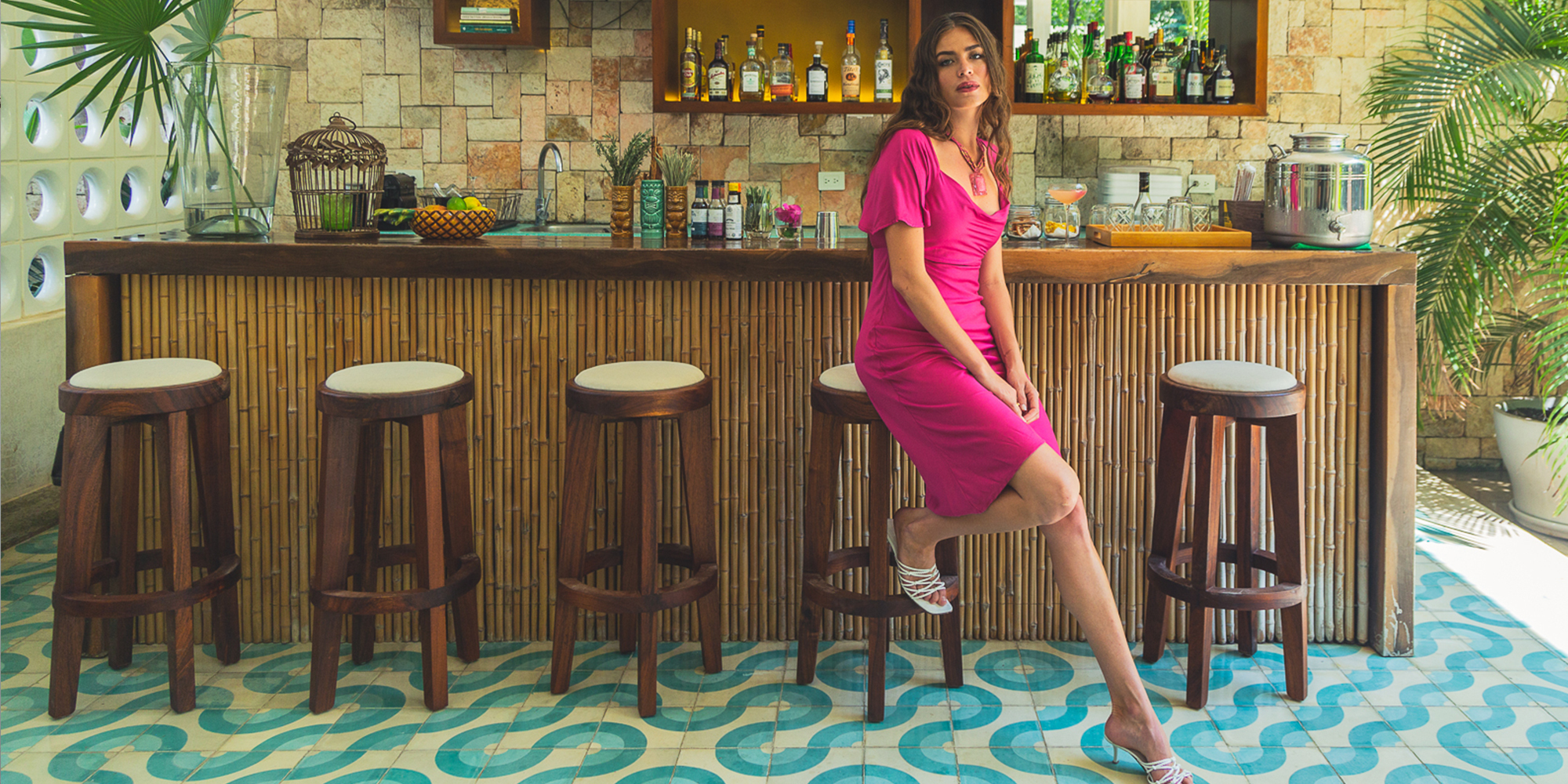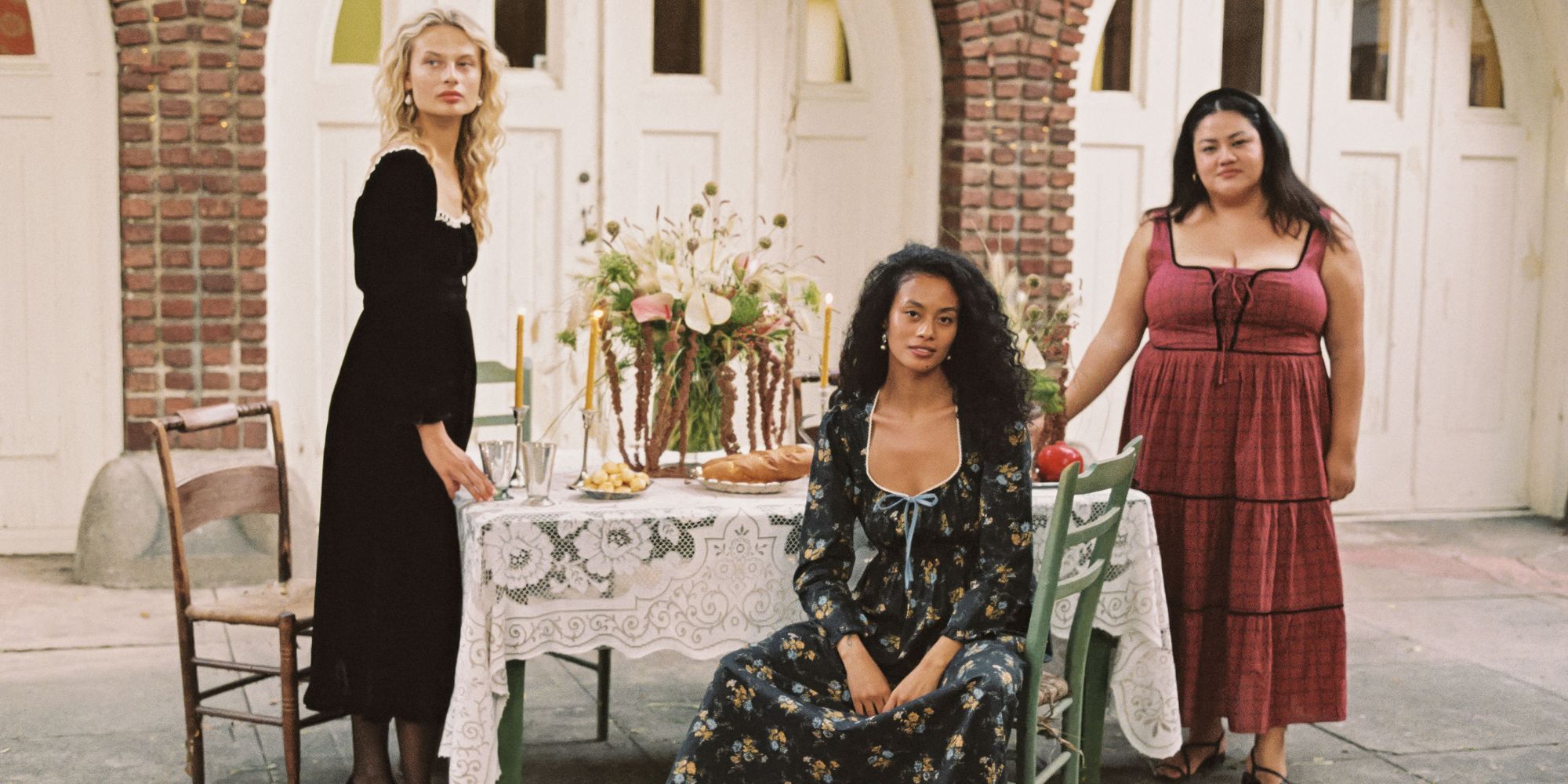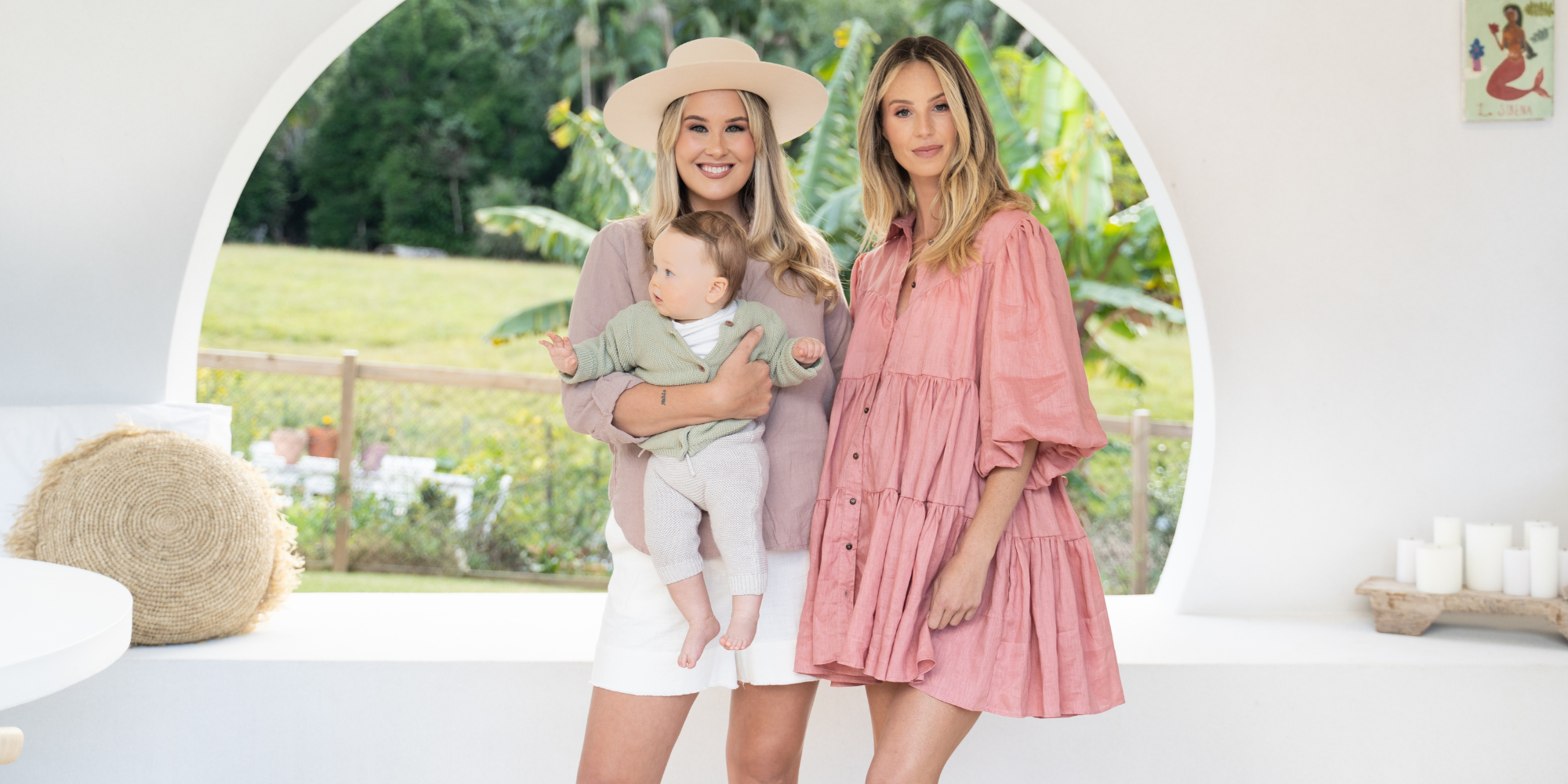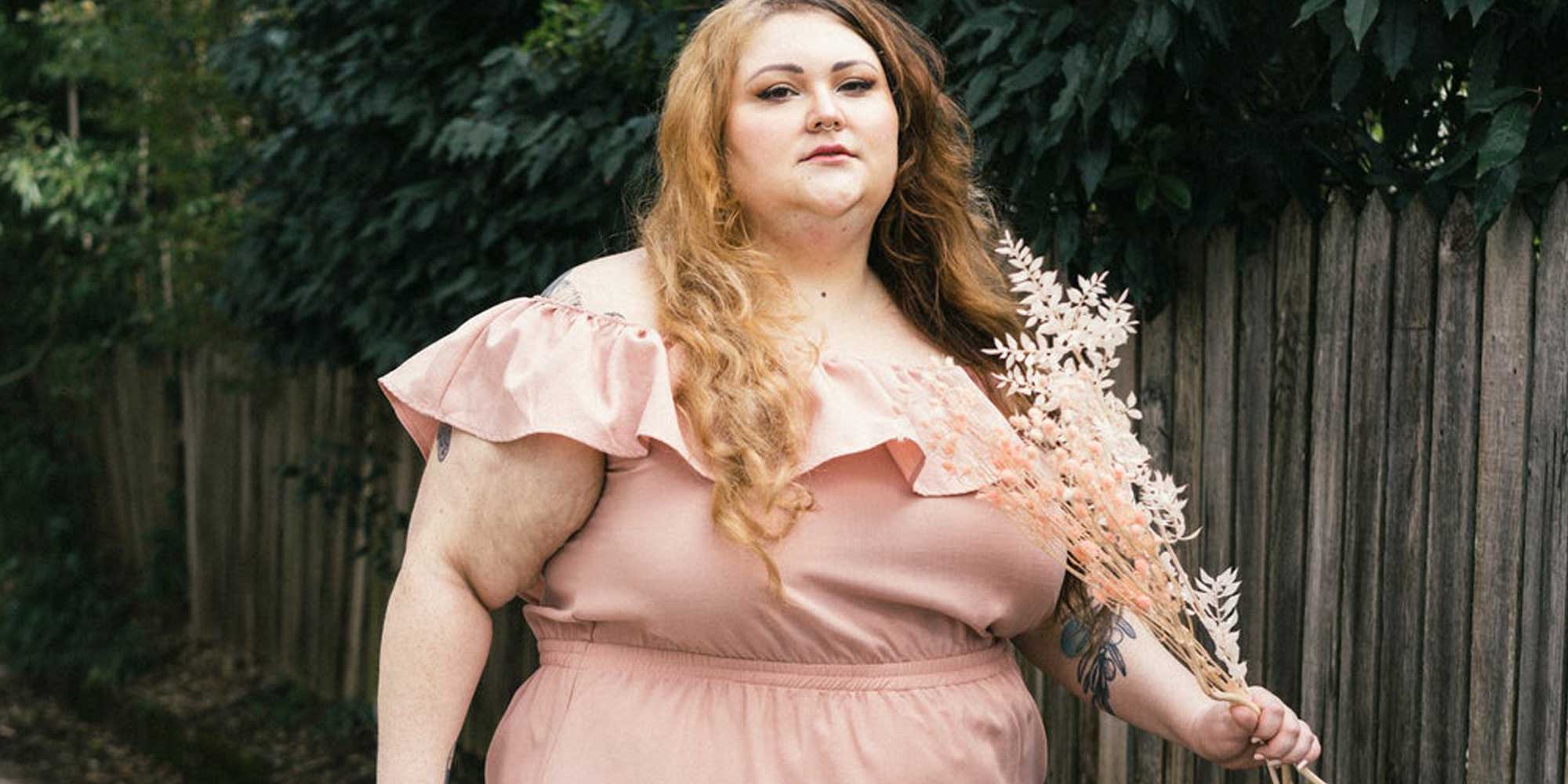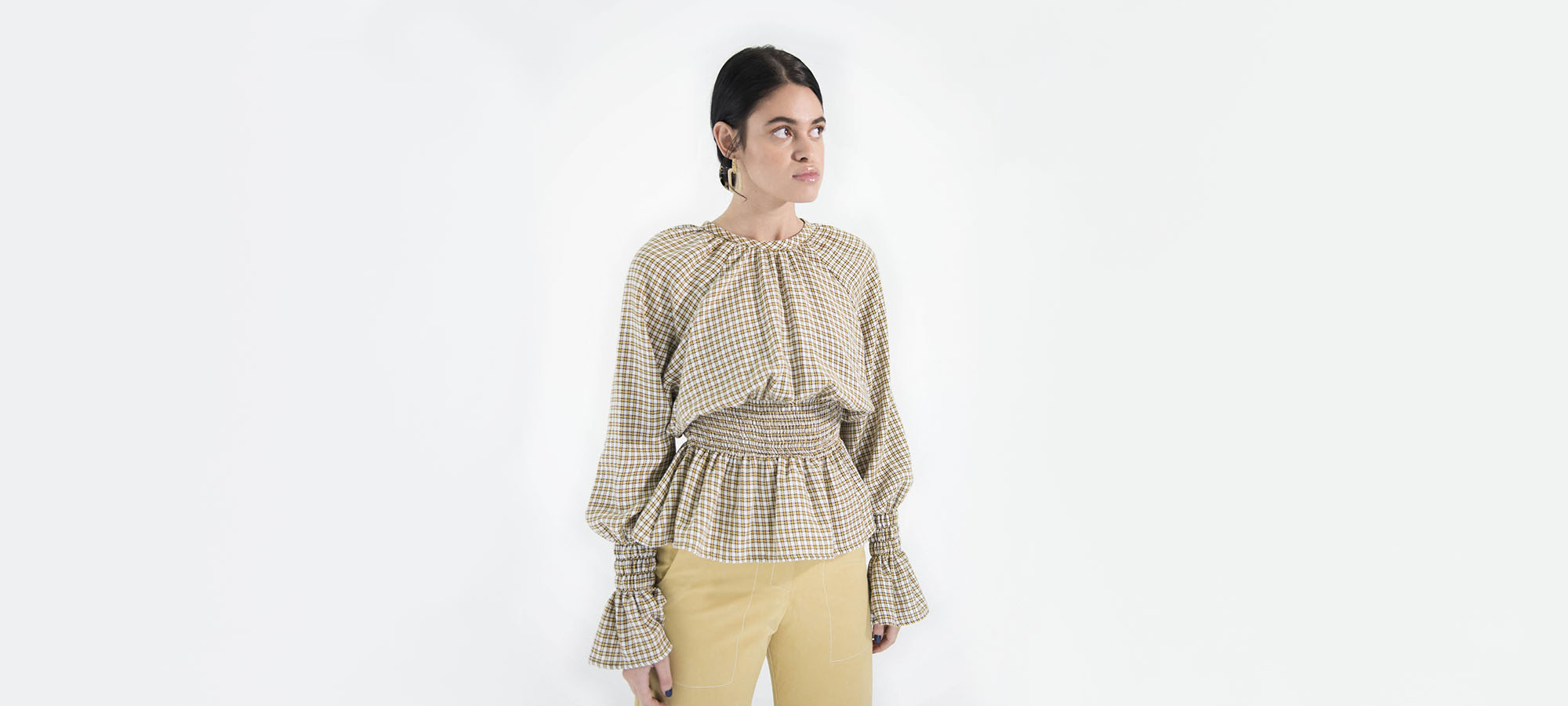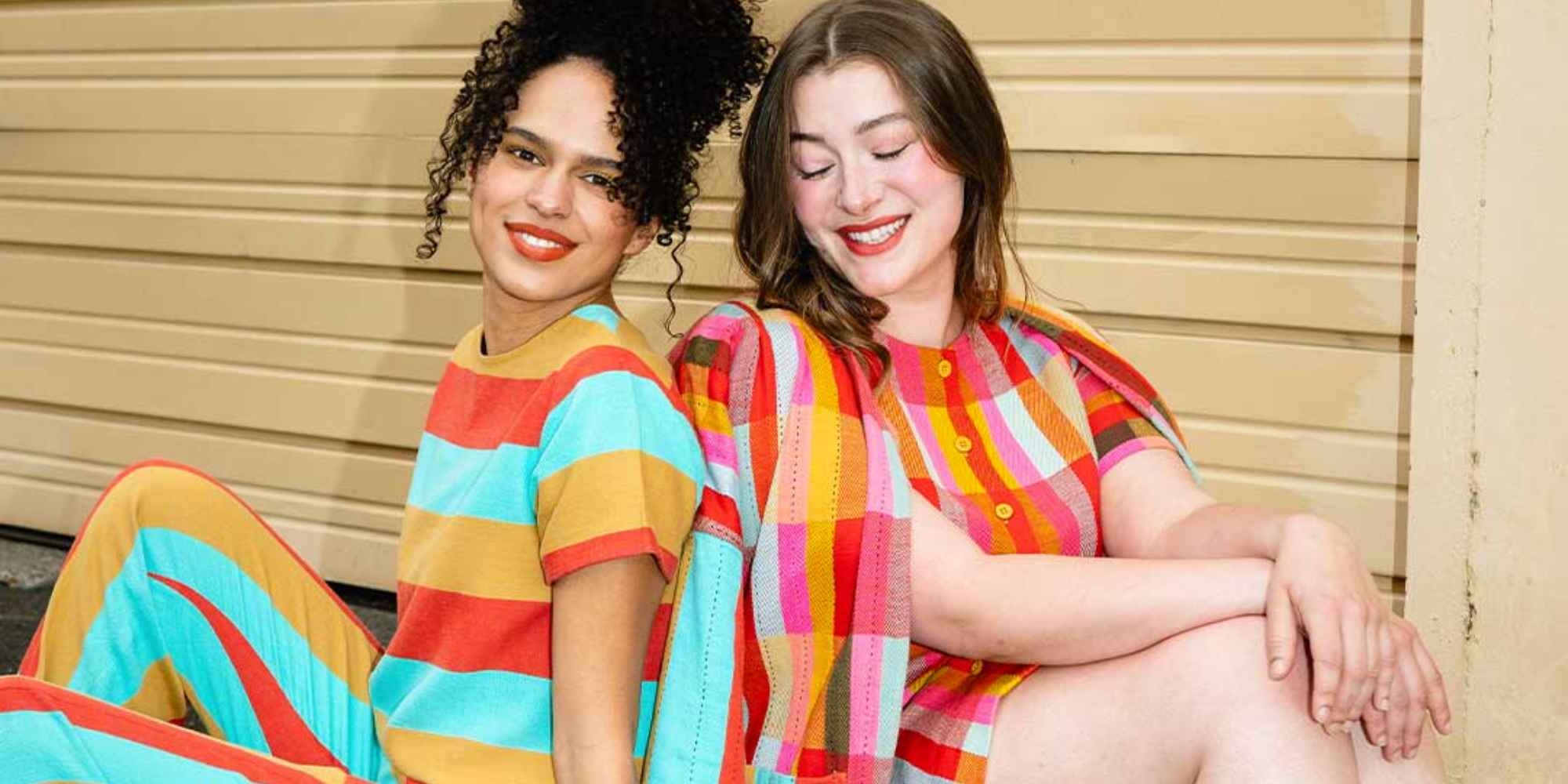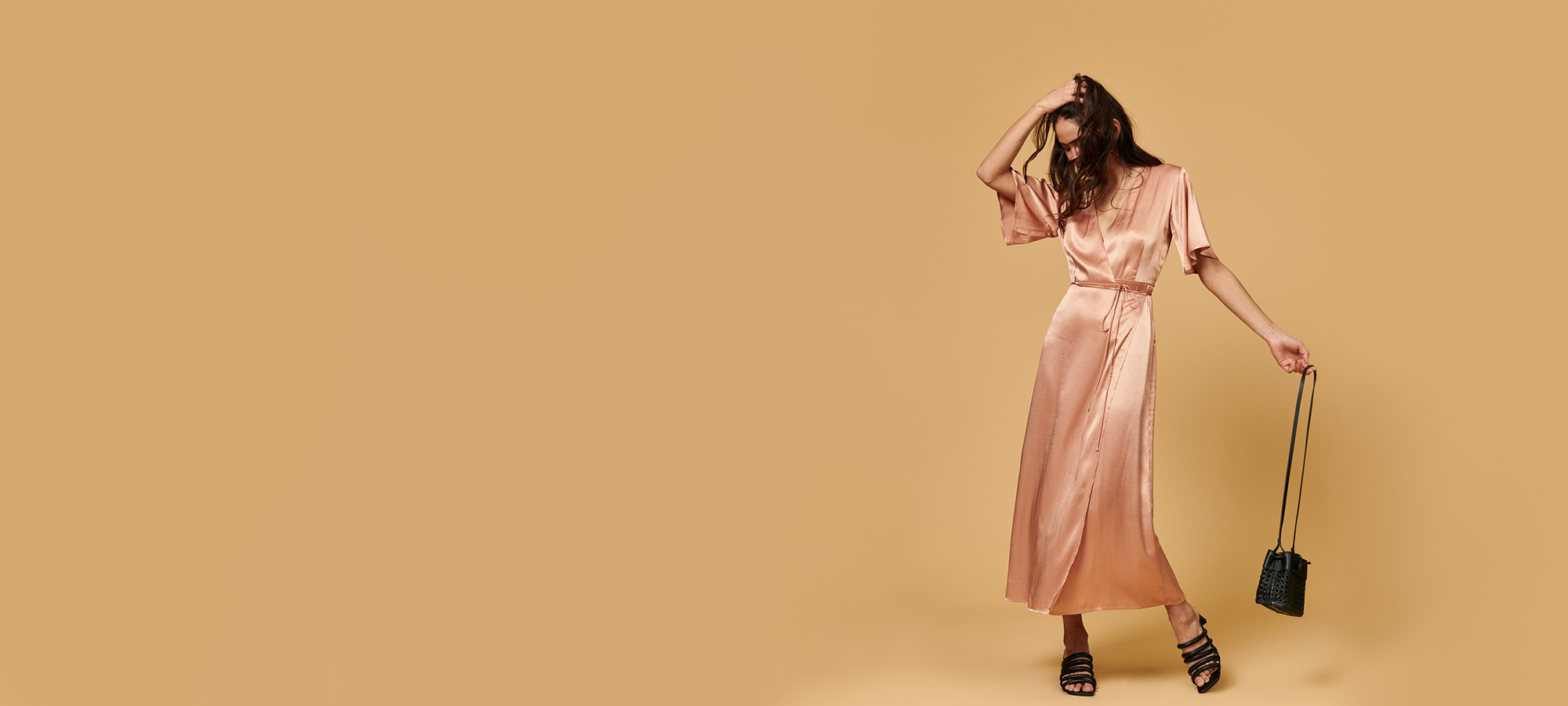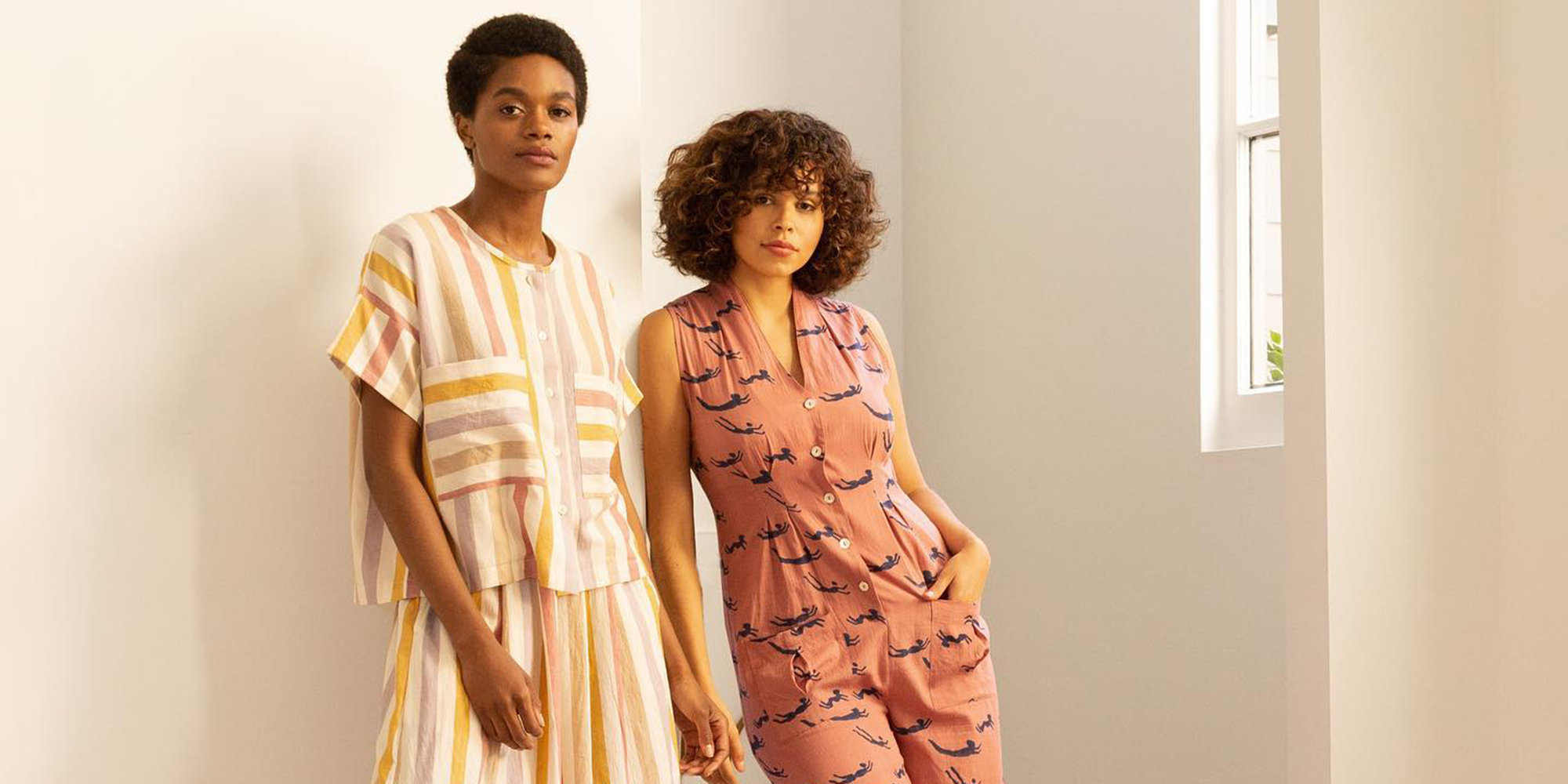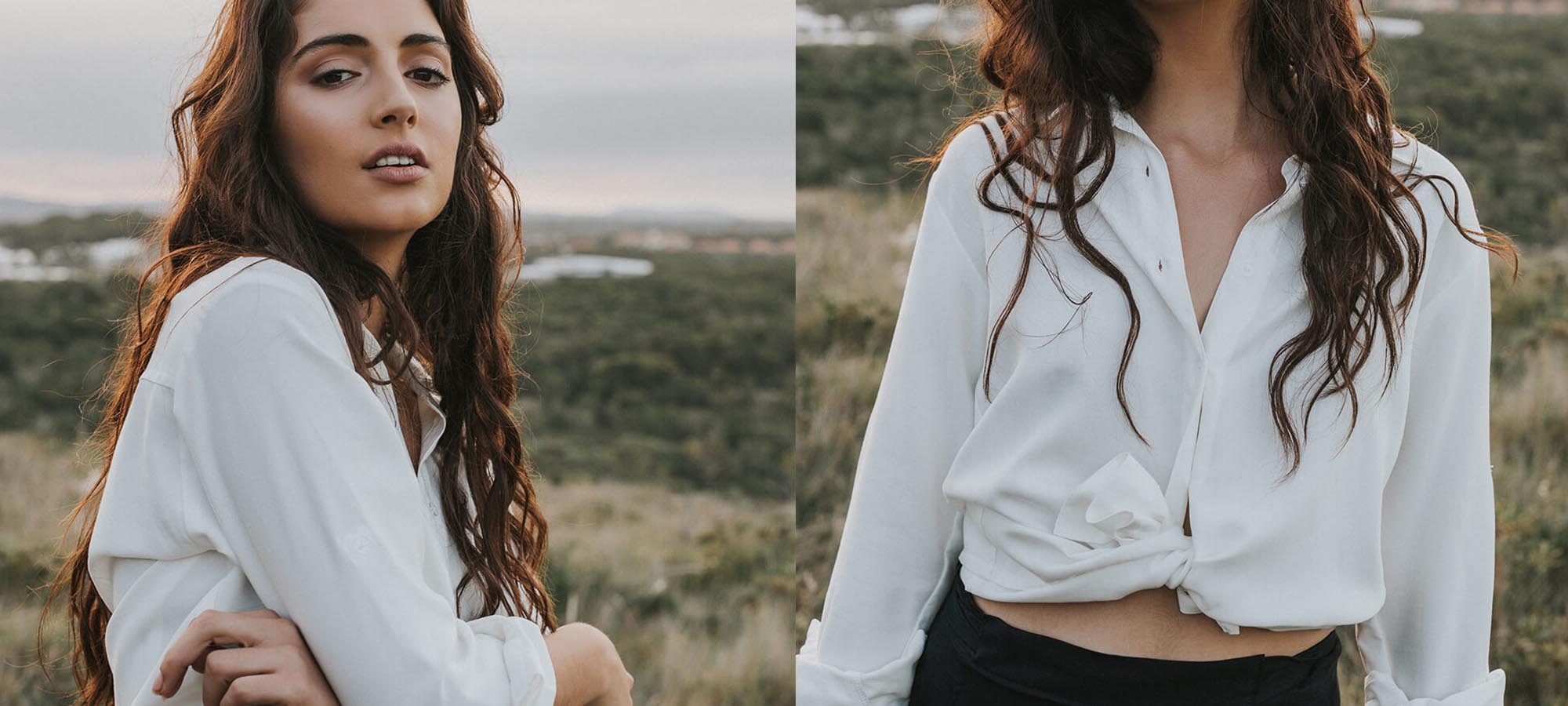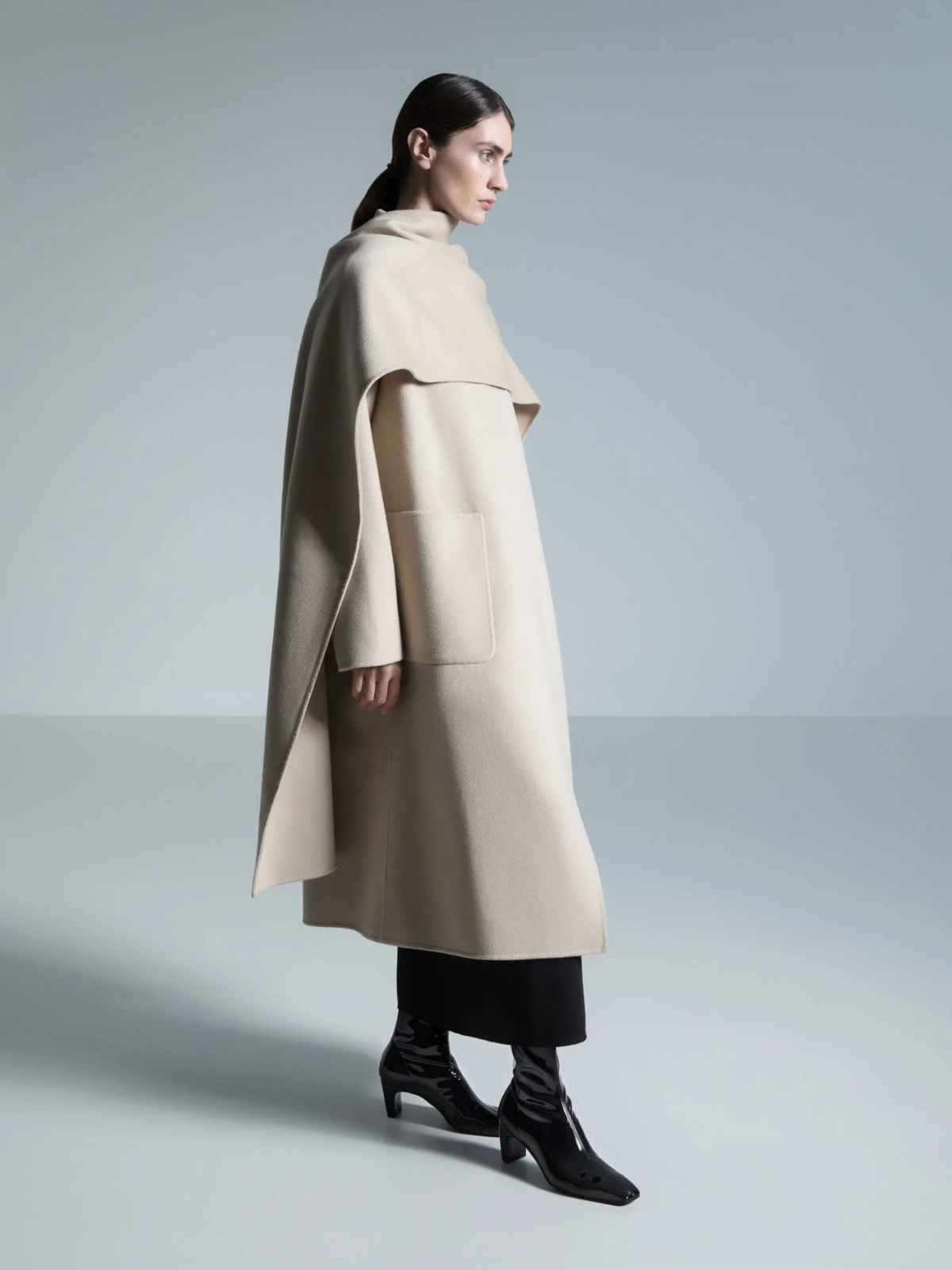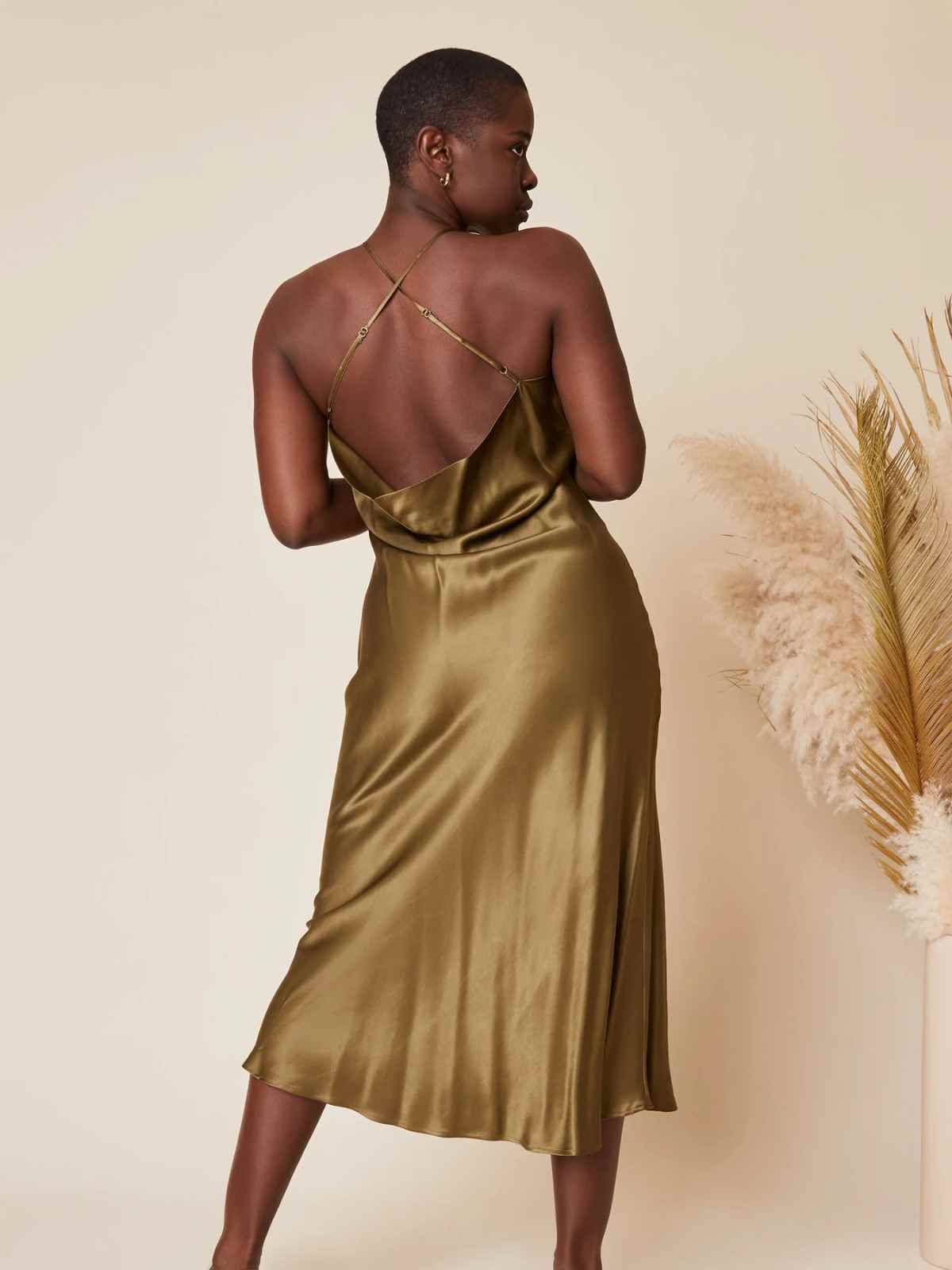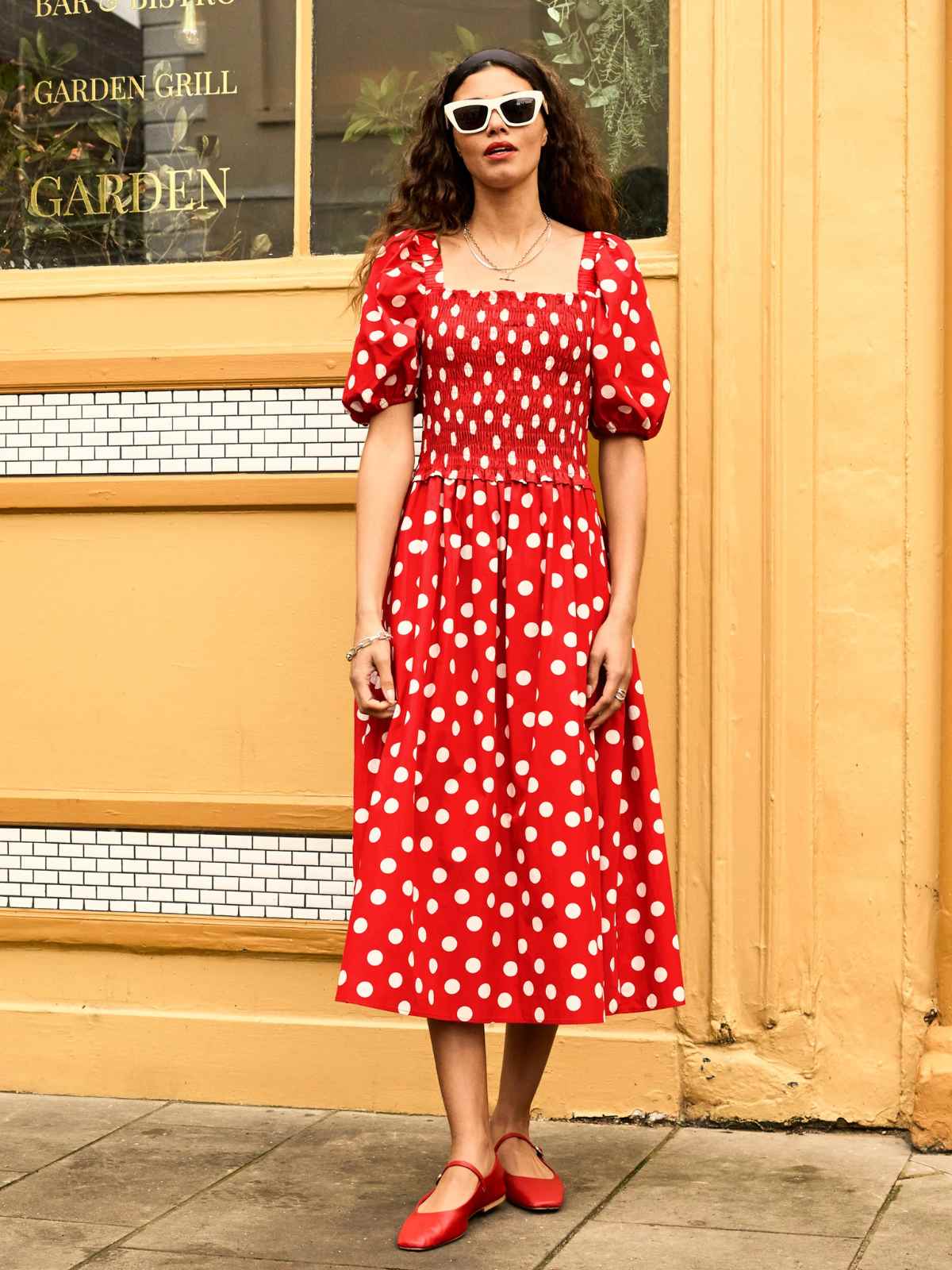Our editors curate highly rated brands that are first assessed by our rigorous ratings system. Buying through our links may earn us a commission—supporting the work we do. Learn more.
American label Free People is known for its range of free-spirited clothes and accessories. So, how ethical is Free People? Sadly, the brand is not pulling its weight when it comes to protecting the Earth and its inhabitants. Keep reading to learn more about Free People’s “Not Good Enough” rating. This article is based on the Free People rating published in September 2022.
Does Free People’s free-spirited image align with its ethics?
If you’re into the free-spirited vibe, you’ve surely come across Free People. Owned by retail giant URBN—which also owns Anthropologie and Urban Outfitters—this brand’s carefully curated aesthetic clearly resonates with its young customer base, operating in a whopping 1,400 speciality stores around the world. Kaia Gerber and Hailey Bieber have even both been spotted wearing one of the brand’s fleece jackets.
But how is Free People impacting people, the planet, and animals? We ask—how ethical is Free People?
Environmental impact
While Free People has made some progress when it comes to reducing its impact on the planet, there is still room for improvement, which is why its environmental rating is “Not Good Enough”.
Free People’s parent company URBN has taken some steps to lower its carbon output across its portfolio. These include the promotion of reusable shopping bags, using energy efficient LED lighting in stores, improving fuel efficiency in transport, and renewable energy being installed in part of the brand’s direct operations. Free People also uses some lower-impact materials, including recycled materials.
However, we found no evidence the brand reduces carbon and other greenhouse gas emissions in its supply chain. There is also no evidence it’s taking adequate steps to address hazardous chemicals in production, or that it manages water usage and wastewater.
Whilst the brand has the potential to incorporate more lower-impact materials, its reliance on a fast fashion model ultimately renders it unsustainable. By following fleeting trends and producing huge amounts of resource-intensive clothes, it’s hard to see how Free People can become more environmentally-responsible without embracing a different business model.
Labour conditions
We also rated Free People’s impact on people “Not Good Enough”. To start with, none of Free People’s supply chain is certified by labour standards which ensure worker health and safety, living wages, or other labour rights. The brand received a score of 11-20% in the Fashion Transparency Index, which shows it should be more transparent about its practices.
On its website, Free People states that suppliers must conduct business in accordance with the law. This includes remaining free from the use of child or slave labour, discrimination, and compliance with wage and hour requirements, and health, safety, and environmental laws. But there is no evidence that workers are being paid a living wage.
And whilst Free People states some of its supply chain is independently audited—including with the use of unannounced audits—it is unclear how often or which part of the supply chain is audited. What’s more, the brand likely publishes some information about its supplier policies and audits, but it doesn’t publish a list of suppliers or information about forced labour, gender equality, or freedom of association. The welfare of workers cannot be guaranteed if a brand cannot trace all of its supply chain.
Finally, Free People doesn’t disclose any policies or safeguards to protect suppliers and workers in its supply chain from the impacts of COVID-19.
A good start would include paying a living wage and releasing its list of suppliers to the public, as well as improving efforts to trace all of its supply chain.
Animal welfare
Although Free People has made some progress for animal welfare, there is still a way to go before it can achieve a higher rating.
While Free People went angora-free in 2016 as part of URBN’s decision to stop using angora across its portfolio, the brand still uses leather, wool, and exotic animal hair from unspecified sources. Unfortunately, the welfare of both the animals and workers cannot be guaranteed if the brand cannot trace the source of its products.
Free People’s animal rating is “Not Good Enough”. Free People could improve its rating by tracing the sources of its animal-derived materials, or even better, by not using them in products altogether.
Overall rating: Not Good Enough
Free People has taken some positive measures, but it’s simply not pulling its weight when it comes to protecting the planet, people, and animals. If the brand hopes to become more ethical in the future, it could start by setting concrete goals to reduce its environmental impact and provide more information on its labour practices and supply chain. We hope that Free People will start working towards truly embodying the progressive, nature-loving values that it claims to represent. Perhaps its parent company URBN, which has already surpassed $4B in revenue so far this year, can help it achieve this vision.
Note that Good On You ratings consider hundreds of issues, and it is not possible to list every relevant issue in a summary of the brand’s performance. For more information, see our How We Rate page and our FAQs.
Luckily, we found nine more ethical and sustainable alternatives to Free People.
More ethical alternatives to Free People
Our favourite “Good” and “Great” alternatives to Free People

